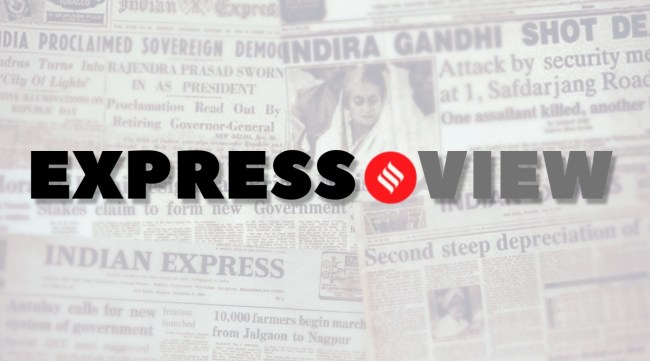Opinion G20 meet shows a deepening crisis in multilateralism
Yet India must remain optimistic about September summit
 The government must dispel that spectre. And the CPR must be left alone, in fact enabled, to do what it does, and which is an essential part of a deliberative democracy.
The government must dispel that spectre. And the CPR must be left alone, in fact enabled, to do what it does, and which is an essential part of a deliberative democracy. The inability of the Group of Twenty foreign ministers, who met in Delhi this week, to agree on a final statement was no surprise. Given the current polarised world environment amid the continuing war in Ukraine, expectations from the G20 meeting were not too high. Yet, the fact that the foreign ministers could not agree to reiterate a formulation on Ukraine that they had articulated at the G20 summit in Bali, Indonesia, last November underlines the deepening great power conflict and worsening crisis of multilateralism. The principal reason for the diplomatic failure at Delhi was the decision by Russia to walk away from the Bali consensus and China’s decision to support it. As the Russian Foreign Minister Sergey Lavrov put it, the Bali Formula was a “thing of the past”.
Three months ago, when the Bali summit took place, the Russian invasion of Ukraine was in a disarray as it rapidly lost ground in the areas that it had occupied. Since then Russia has reinforced its defensive lines in Ukraine and is now in the middle of a renewed military offensive. Moscow has also successfully consolidated its expansive strategic partnership with Beijing. President Vladimir Putin appears confident that time is on his side and that a prolonged war would exhaust Ukraine, divide the West and allow Moscow to prevail, if at a massive cost to Russia. Meanwhile, US President Joe Biden has reaffirmed that the US and the West will stand by Ukraine for “as long as it takes”. The diplomatic room for Delhi, which led the effort in Bali to produce a consensus that all sides could live with, had clearly shrunk in the last few weeks.
India, which has the responsibility to lead the G20 at this difficult juncture, is not ready to throw in the towel. It is confident that there is much time before the G20 leaders arrive in Delhi for the September summit. If the ground situation has altered in the few weeks since the Bali summit and led to a dissipation of the consensus, there is no reason to believe the current dynamic situation in Ukraine will remain unchanged in the next few months. Prime Minister Narendra Modi, who addressed the G20 foreign ministers, was realistic enough to recognise the profound crisis in multilateralism today. At the same time, though, the PM underlined India’s twin ambitions — to continue the campaign to reform multilateralism and to get the world to take greater cognisance of the challenges faced by the “Global South”. Acknowledging the difficulties in producing a consensus on Ukraine, External Affairs Minister Subrahmanyam Jaishankar pointed to agreement among the foreign ministers on a number issues of interest to India and the developing world. These include food and energy security, cooperation to counter terrorism, climate change, global health and disaster management. India is right to remain optimistic and committed to a sustained effort to make the G20 summit in September a success.






